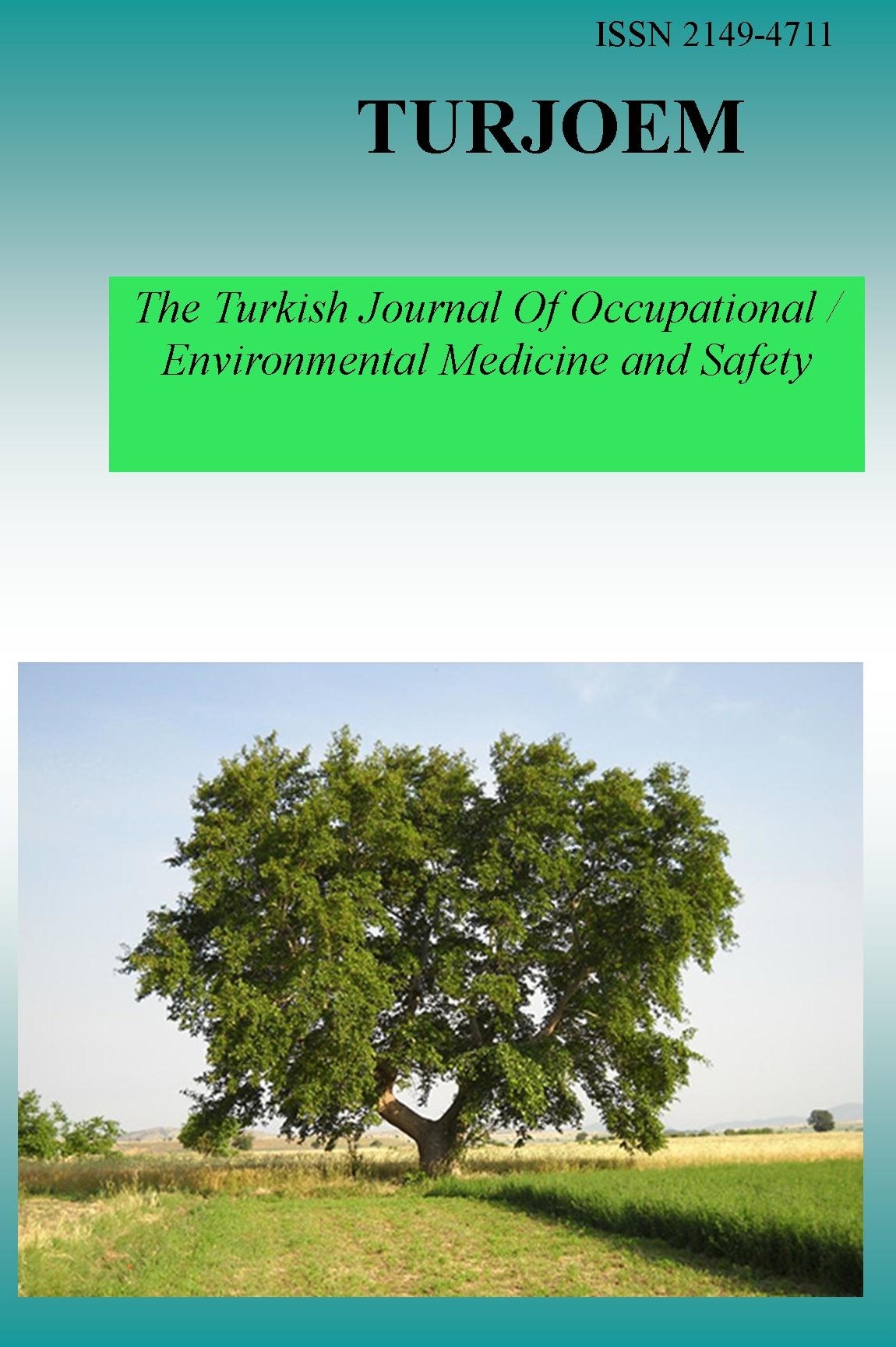THE EFFECT OF MUTATED DNA REPAIR GENES ON DNA DAMAGE IN INDIVIDUALS OCCUPATIONALLY EXPOSED TO ARSENIC
THE EFFECT OF MUTATED DNA REPAIR GENES ON DNA DAMAGE IN INDIVIDUALS OCCUPATIONALLY EXPOSED TO ARSENIC
___
- Middle Black Sea Passage Generation of Agricultural Research Institute Director, Tokat, Turkey
- Ankara University, Institute of Forensic Sciences, Ankara, Türkiye
- ISSN: 2149-4711
- Başlangıç: 2015
- Yayıncı: Engin TUTKUN
Elif ÇALIK, Demet UZUN, Ümmihan Taşkoparan YILMAZ
TOXIC EFFECT OF LEAD EXPOSURE TO NEWBORN AND CHILDREN
Esma SÖYLEMEZ, Zeliha KAYAALTI
CHEMICAL CONTENTS OF THE FOOD: CURRENT POINT OF VIEW
Filiz Ekim ÇEVIK, Hüseyin ÇAKAN
ANTIMICROBIAL ACTIVITY, GENOTOXICITY AND DNA INTERACTIONS STUDIES OF SOME IMINE COMPOUNDS
Pınar GÖK, Neslihan DEMIR, Mustafa YILDIZ, Bahar GÖK
POLLENS, PLANTS, POLLUTANTS & ALLERGIES
Aysel Kekillioğlu, Ebru Kunduracı, H.Kübra Kekillioğlu
. TBARS, SH AND NITRIC OXIDE LEVELS IN MALE WORKERS WITH OCCUPATIONAL LEAD EXPOSURE
Gülsen YILMAZ, Hatice SÜRER, Elmas ÖĞÜŞ, Engin TUTKUN, Hınç YILMAZ, Fatma Meriç YILMAZ
HRCT AND PULMONARY FUNCTION FINDINGS OF OCCUPATIONAL ARSENIC EXPOSURE IN WORKERS
THE EFFECT OF QUITTING SMOKING ON OXIDATIVE STRESS PARAMETERS
Bicer CEMİLE, Yuksel SEVDA, Cucen ZUBEYDE, Sengezer TİJEN
